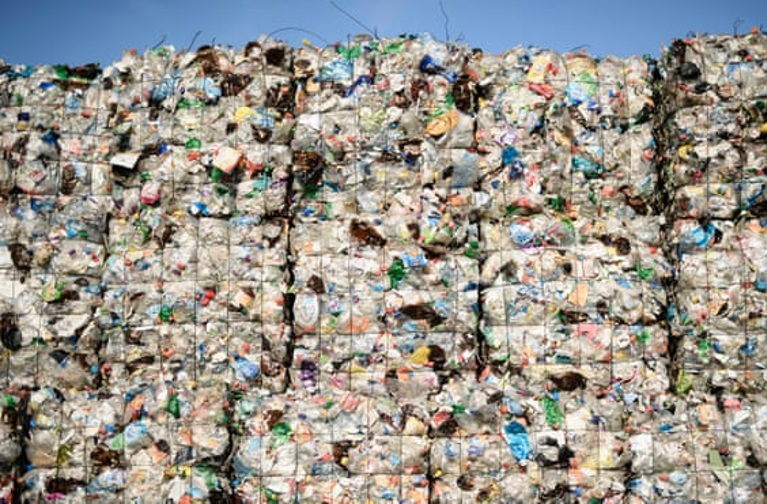When the Intergovernmental Panel on Climate Change (IPCC) published their latest report in October, the message was stark: if the planet wants to avert dangerous climate breakdown, we need to cut emissions in half by 2030, and hit net zero by the middle of the century.
It would be difficult to overstate how dramatic this trajectory is. It represents a total and rapid reversal of our present direction as a civilisation. We’ve built up a global energy infrastructure around fossil fuels over 200 years, and now we need to completely transform it in 30.
The only way to accomplish this feat is with coordinated government action on a massive scale. Proponents of the US’s Green New Deal idea have it right: we need to pump public investment into churning out solar panels, wind turbines and batteries at a historically unprecedented rate, reminiscent of the industrial retooling that enabled the allies to win the second world war.
But even this won’t be enough, in and of itself. There’s something missing from the Green New Deal strategy – and it could turn out to be a fatal flaw.
The problem with the existing plan is that it doesn’t address the paradox of growing energy demand. Over the past few years, scientists have been warning that we may fail to reach our climate goals even with the most aggressive efforts, because global economic growth is driving energy demand up at a pace that’s outstripping our ability to install clean power.
Today the world is producing 8bn more megawatt hours of clean energy each year than in 2000. That’s a lot – enough to power all of Russia. But over exactly the same period, economic growth has caused energy demand to increase by a staggering 48bn megawatt hours. In other words, all that new clean energy we’ve rolled out covers only a small fraction of new demand. That’s why emissions keep rising. It’s like shovelling sand into a hole that just keeps getting bigger.
This problem is going to eventually cripple us. If we continue growing the global economy at existing rates, it will nearly triple in size by the middle of the century. That’s three times more production and consumption than we’re already doing – which will require nearly three times more energy. It will be difficult enough for us to decarbonise the existing global economy – virtually impossible do it three times over.
Our obsession with economic growth is making our task much more difficult than it needs to be. It’s like we’ve chosen to fight this battle facing uphill, with one hand tied behind our back.
There’s an easier way. The recent IPCC report points out that to have a realistic chance at staying under 1.5C, we need to scale down energy demand. The scenario its proposes – developed by an international team of scientists – calls for high-income nations like Britain and the US to significantly reduce their consumption of material stuff.
Right now, rich nations devour 28 tonnes of material per person per year – including everything from fish to forests, plastics to metals. That’s four times more than ecologists say is sustainable. It requires an extraordinary amount of energy to extract, produce and transport all that stuff. By using less of it, we can shrink global energy demand and make it much easier to decarbonise the economy.

‘We could tax red meat to promote a shift to less resource-intensive foods, and ban single-use plastics and disposable coffee cups.’ Plastic waste at a recycling plant. Photograph: Clemens Bilan/EPA
This isn’t just about convincing individuals to lead simpler lives, although of course we need that. It’s about changing the way our economy operates – liberating ourselves from the irrational imperative to grow material use unnecessarily.
How can we do this? One way is to legislate extended warranties on products, so washing machines and refrigerators last for 30 years instead of 10. Another is to ban planned obsolescence, so manufacturers can’t create products that are designed to fail. And we could introduce a “right to repair” so we can get our smartphones and blenders fixed cheaply when they break down rather than having to buy new ones.
We could also cut down on waste by banning food from landfill (as South Korea and France are doing). We could tax red meat to promote a shift to less resource-intensive foods, and ban single-use plastics and disposable coffee cups. We could liberate public spaces from advertising (like São Paulo has done) to free us from the psychological pressures of having to buy stuff just to feel good about ourselves. And we can expand access to public goods and develop platforms for sharing things like cars and lawnmowers.
All of these measures would dramatically reduce material consumption, without any loss to our wellbeing. But to really make it work, we need to get straight to the heart of the issue: put a cap on annual material use and tighten it year on year, down to 8 tonnes per capita by the middle of the century. This will change incentives across the economy – reorienting people and business toward long-lasting, repairable and recyclable products.
By dramatically reducing energy demand, this approach will give us a good shot at accomplishing our climate goals.
What’s exciting about this is that it doesn’t just help us avert climate breakdown. It also provides our best hope of reversing other aspects of ecological collapse – from deforestation to soil depletion, from biodiversity loss to insect die-off. Reducing our material impact on the Earth means freeing up more space for other living systems to recover and thrive.
We need to do everything we can to transition to clean energy, yes. But we’ll only succeed if we reduce the amount of energy we consume in the first place, rather than continuing to grow it. The science is clear: scaling down material use must be at the core of the Green New Deal – and at the centre of our climate policy.





